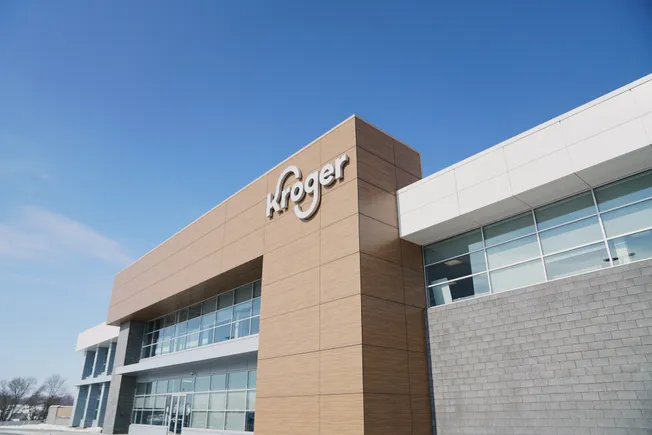In a recent regulatory filing, Kroger disclosed that it invested more than $1 billion over three years in an unsuccessful attempt to merge with rival Albertsons. The majority of these expenses were related to third-party professional fees and credit facility fees incurred by Kroger as it sought regulatory approval for the proposed merger. However, the deal faced strong opposition from the Federal Trade Commission and state attorneys general who argued that it would be anticompetitive.
According to Kroger’s annual 10-K report for 2024, the company recorded $684 million in merger-related costs in the previous year, on top of $316 million spent in 2023 and $44 million in 2022. Additionally, Kroger incurred $34 million in interest expenses in 2024 related to $10.5 billion borrowed in preparation for the acquisition of Albertsons. The borrowed funds were primarily used for a share-buyback program implemented after the merger fell through.
Initially announced in October 2022, the proposed merger between Kroger and Albertsons was valued at $24.6 billion. However, the deal faced significant opposition from various parties, including labor groups, politicians, and antitrust officials. The FTC sought a federal court order to block the merger, while state attorneys general in Washington and Colorado also sought to halt the deal through state courts. Ultimately, a federal judge granted the FTC’s request to stop the merger, and a judge in Washington ruled against the deal as well.
Following the collapse of the merger, Albertsons filed a lawsuit against Kroger, accusing the company of sabotaging the deal by not addressing the FTC’s concerns adequately. Albertsons is seeking a $600 million termination fee from Kroger. Additionally, C&S Wholesale Grocers, which had agreed to acquire nearly 600 grocery stores as part of a divestiture deal related to the merger, is seeking a $125 million termination fee from Kroger as well. Kroger argues that both Albertsons and C&S forfeited these fees by taking actions that violated the terms of the merger agreement.
The fallout from the failed merger has left Kroger facing significant financial and legal challenges. In addition to the expenses incurred during the merger process, the company now has to defend itself against lawsuits from both Albertsons and C&S. The legal battles and termination fee disputes add further complexity to an already costly and contentious situation.
Moving forward, Kroger will need to navigate these legal challenges while also focusing on its core business operations. The company’s experience with the failed merger serves as a cautionary tale for other companies considering similar deals in the future. Despite the significant investment and effort put into the merger, the ultimate outcome was not what Kroger had hoped for, highlighting the risks and uncertainties involved in large-scale M&A transactions.




